- Education
Education
Educating future scientists
Since the beginning, the Champalimaud Foundation has regarded educating future scientists as one of its main objectives. To this end, the Champalimaud Research dedicates considerable effort to the development and implementation of outstanding fundamental and clinical educational programmes, advanced courses and workshops.
PHDs
International PhDs in Neuroscience or Cancer
Two world class PhD programmes
The Champalimaud Foundation's PhD curricula provide students with an integrative, state-of-the-art education in either Neuroscience or Cancer. A central goal of our educational programmes is to foster inquiry and discovery by encouraging active participation, critical thinking, and problem-solving by the students.
We seek talented students to work in a supportive, inclusive, and collaborative environment that trains individuals to participate in the process of scientific inquiry leading to discoveries. Emphasis is given to diverse thinking, positive behaviour, and well-being as core elements for creativity, critical thinking, and leadership.
The two PhD programmes in Neuroscience (INDP) and Cancer (ICDP) provide students with integrative, state-of-the-art education. A central goal is to foster inquiry and discovery by encouraging active participation, critical thinking, and problem-solving by the students.
For both programmes, the initial 9-12 months consist of classes and lab rotations. After a common module about the fundamentals in Biology of neuroscience and cancer, students engage with more specific curricula.
The Neuroscience Programme includes courses focused on the neuronal and circuit basis of behaviour, whereas the Cancer Programme is focused on cancer-body interactions, spanning the molecular, cellular, and clinical basis of physiology and cancer within the broader context of the organism.
The courses have a strong practical component, as well as focus on quantitative skills. In addition, students perform laboratory rotations, which allow them to familiarise themselves with the research done across different labs and join the lab where they will conduct their doctoral research.
Admitted students will receive full funding, renewable every year up to a maximum of 5.5 years (internal and/or external funding, ie, FCT, "la Caixa", Marie-Curie, among others). This includes a monthly stipend, yearly tuition, and academic fees. The students will be mentored to apply for external fellowships as part of the curriculum.
- The applications for the Neuroscience PhD Programme (INDP) will open in December 2, 2025 and close in February 4, 2026 (EXTENDED DEADLINE). To know more about the INDP, please follow this link.
- The applications for the Cancer PhD Programme (ICDP) call will open in 2026. To know more about the ICDP, please follow this link.
- Find out more about our alumni and programme statistics in this link.
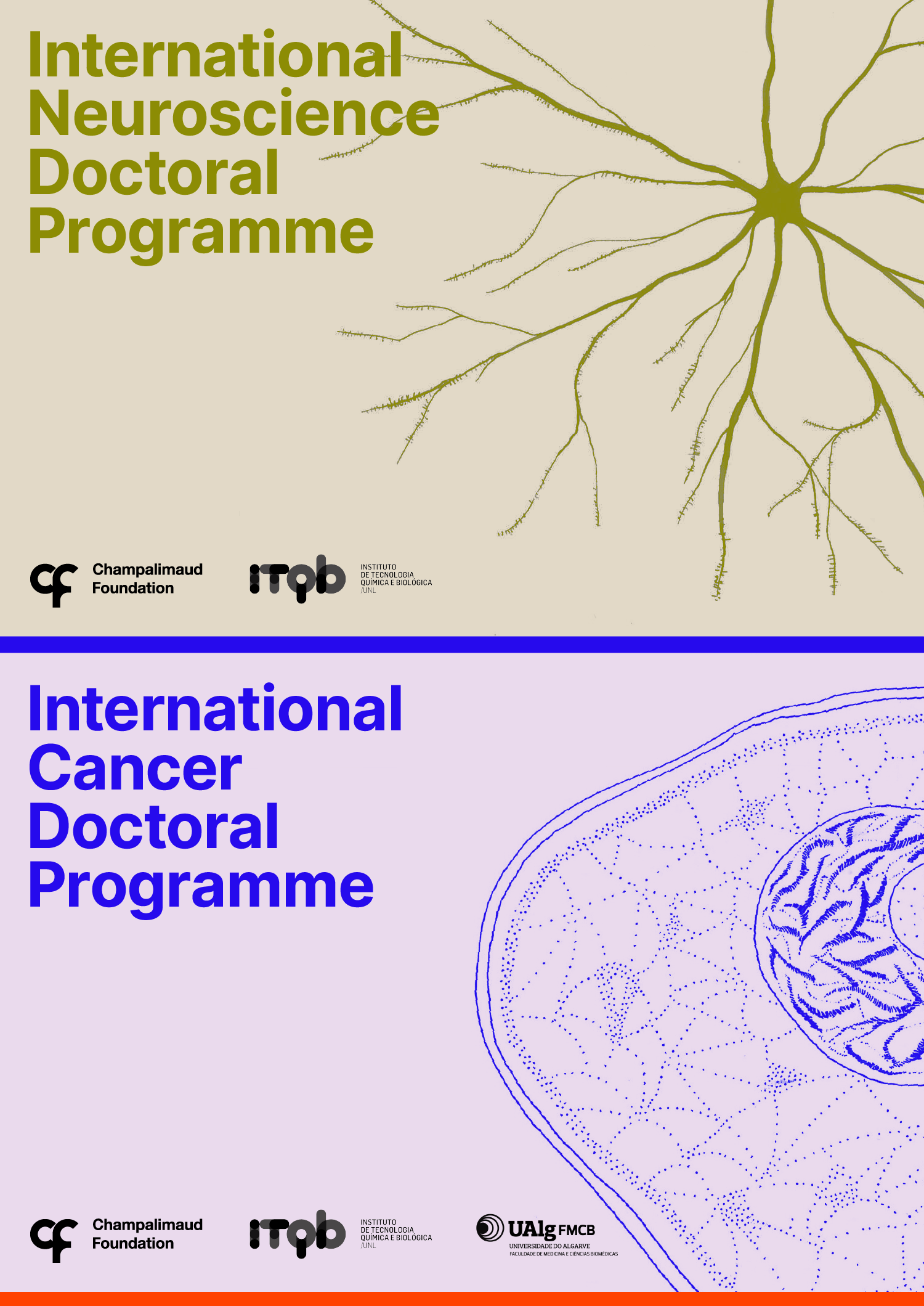
Courses
CAJAL Advanced Neuroscience Training Programme
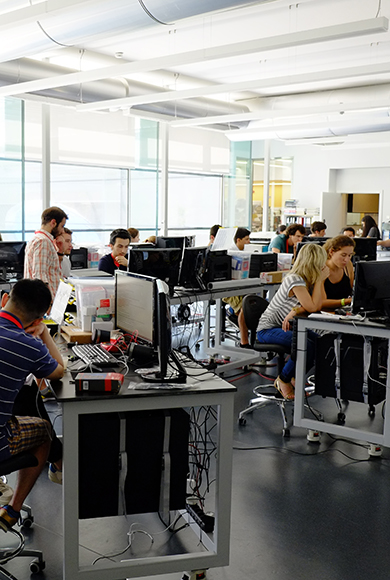
The CAJAL Advanced Neuroscience Training programme consists of 4 yearly courses, 2 held at Champalimaud Centre for the Unknown in Lisbon and 2 in Bordeaux Neurocampus. These two institutes were chosen to be the first centres in Europe that will host recurring neuroscience training courses, following a model that has been successfully running in the US for decades.
For more information about the CAJAL Advanced Neuroscience Training Programme, follow this link.
Internships
Office of Research Internships
Champalimaud Research accepts internship applications throughout the year, via a designated form. Internships are considered only for periods up to 6 months (for longer periods of time, applicants should contact the research groups directly). Internship applicants (usually undergraduates) choose up to 5 labs to apply to and, if accepted for an internship, will design their own project with the PI. For further information, please contact the Office of Research Internships, through the email ori@research.fchampalimaud.org.
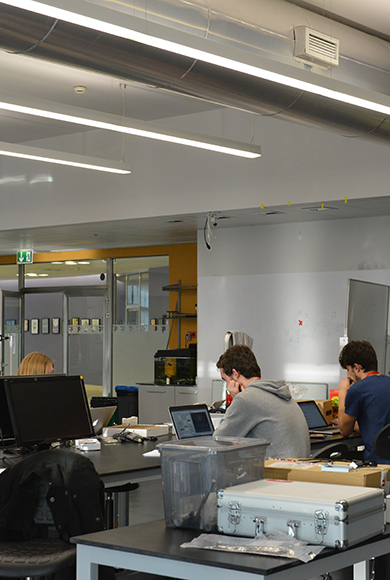
Outreach
Ar|Respire Connosco Events
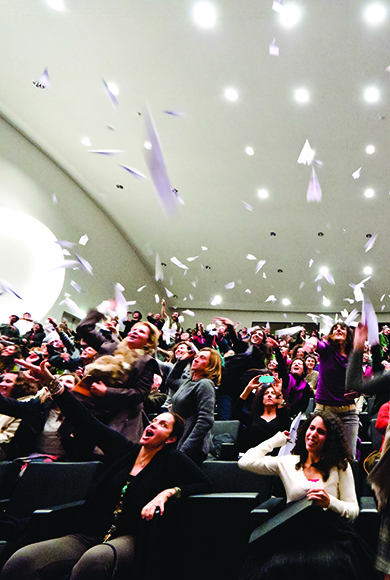
Ar (Air in Portuguese) was one of our first steps taken in science communication, organized by a group of students and researchers from the Champalimaud Research.
Ar aims to create ‘A world moved by critical and creative thinking’. To achieve this, and drawing on the enthusiasm of our researchers and students, a series of science communication events combining world-renowned speakers, interactive multimedia and audience participation has been created.
Ar events explore fundamental scientific themes by intertwining work from leading thinkers: local and international, scientific and cultural.
The inaugural event, ‘Engineering the Mind’, happened in October 2011 and since then, 30 more events have taken place at the Champalimaud Centre for the Unknown. Each event showcases speakers ranging from scientists, artists, chefs, group facilitators, cyborgs, alternative community leaders, storytellers, teachers and others. They engage the public to think, interact and debate their ideas. Presentations are entertaining and dynamic and include cutting edge interactive games and open discussion. The events already draw more than 10.000 people to the CCU and have been enthusiastically received by the audience and media alike. To explore, learn, be provoked and inspired, click here.
Outreach
Ar Magazine
ar magazine was conceived by a group of neuroscience students and researchers from the Champalimaud Research.
Driven by our passion about science and science communication, we created a platform for researchers from our institute and worldwide to express themselves. Our articles cover everything science – from interviews with researchers, recent discoveries, to the interplay of science and society. A group of editors from our institute, both researchers and from the science communication office, curate the magazine.
Join us with your questions and we promise to provide you with plenty more.

Outreach
School Visits to the CCU
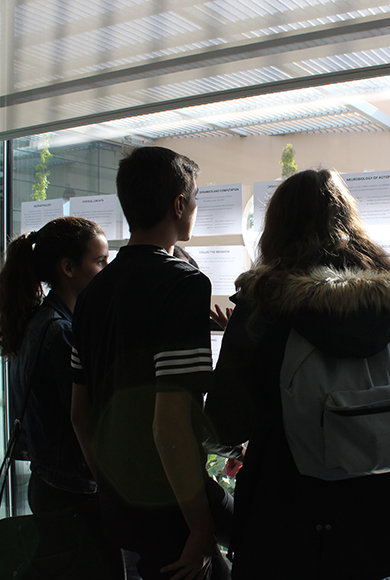
I. Schools
Tell me about the visits to the CCU
-
Happen almost every month during the school year;
-
The day of the visit is pre-defined by the organising team;
-
Each visit lasts around 2h;
-
Throughout the visit, you will learn about the Champalimaud Foundation and its operational areas, namely about the scientific research areas and the daily-life of a scientist, by engaging in open discussions with members of the Champalimaud Research. In addition, there will also be the opportunity of visiting some of the scientific working places.
What is the criteria to participate in the CCU visits?
We would like to reach out to more schools, namely to schools that have not visited the CCU before. Hence, and considering the fast growing interest from schools to visit the research center in addition to the limitations inherent to being a oncology treatment clinic, we, unfortunately, have to do a selection of the schools that get to visit us each year, as it is impossible to receive them all. This selection takes into consideration a set of factors:
-
Following the current internal restrictions, the group visiting the CCU cannot exceed 30 people in total (including students and teachers);
-
Priority will be given to high school students (10th, 11th and 12th grades). If several schools choose the same date, priority will be given to 12th graders;
-
Priority will be given to schools that have NOT visited the CCU before;
-
Motivation to visit the CCU;
-
Geographic location (we will attempt to bring students from all regions of Portugal).
Every year in September/October we open the registration for the school visits. Confirmation of the school visit will be done via email. Groups whose visits won’t be possible to accommodate will also be notified via email.
Registrations for the 2025/2026 school year visits are closed as all dates are now fully booked. Schools are being notified via email.
After the registration is closed we will not accept any more school requests for visits that school year.
II. Independent / Small Groups
Would you like to do a scientific visit to the CCU?
Do you have a particular interest related to a CNP research topic/laboratory?
Send us an e-mail explaining your interests and you will receive a reply with information about the availability and programme of the visit.
Contact email: info@fundacaochampalimaud.pt
